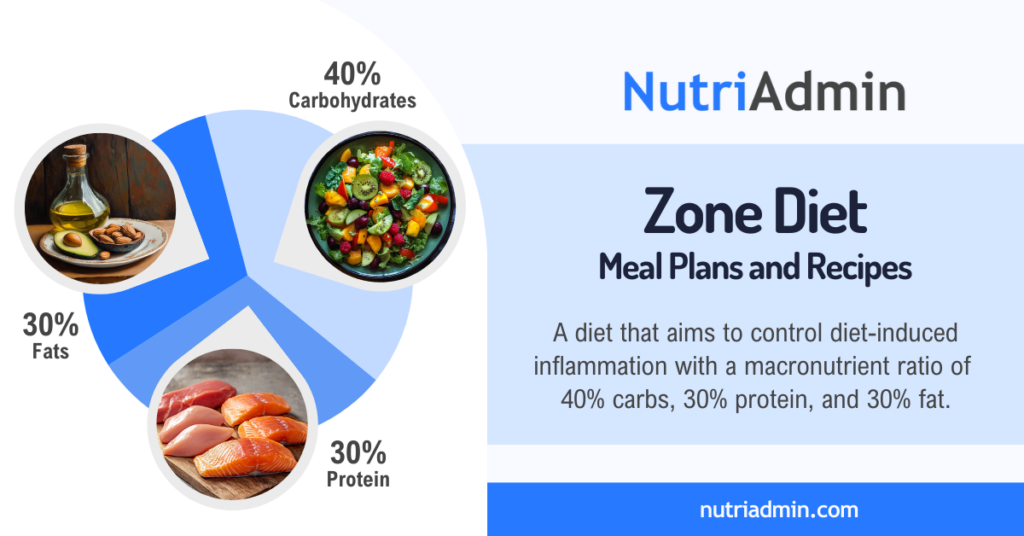Have you ever wondered how many calories are in the foods you eat? Whether you are trying to lose weight, gain muscle, or just trying to maintain a balanced diet, knowing the calorie content of your meals is important. In this article, let’s explore the concept of calories—what they are, why they’re crucial, and why some individuals struggle to lose weight despite being in a calorie deficit. We’ll also provide practical calorie deficit tips to help you in reaching your nutrition and fitness goals. Additionally, we’ll clear up common myths about calories.
- What are calories?
- What is a calorie deficit?
- Why are calories and calorie deficit important?
- How do I calculate my daily calorie needs?
- Calories and Macros
- Calorie Deficit Tips
- Determine Your Calorie Needs
- Set Realistic Goals
- Track Your Intake
- Focus on Nutrient-Dense Foods
- Limit High Calorie Foods
- Choose Lower Calorie Substitutes
- Watch Portion Sizes
- Incorporate Protein
- Choose Plant Based Options
- Include Regular Exercise
- Plan Balanced Meals
- Track Your Progress
- Celebrate Wins with Non-Food Rewards
- Be Patient and Consistent
- Seek Professional Guidance
- Meal Planning Tool
- Reasons Why You're Not Losing Weight on Calorie Deficit
- Debunking Calorie Myths
- Conclusion
- Frequently Asked Questions
What are calories?
In the context of nutrition and physiology, a calorie is a unit of measurement representing the amount of energy released when the body metabolizes (burns) food. The food we eat contains macronutrients—carbohydrates, proteins, and fats—which are the primary sources of calories. During digestion, these macronutrients are broken down into simpler compounds, and their energy content is released.
To simplify, calories are a way to measure the energy you get from the food you eat. When you consume calories through food, your body uses that energy to function, stay active, and carry out all its processes. If you consume more calories than your body needs, you may gain weight, and if you consume fewer calories, you may lose weight.
Caloric information is typically expressed in kilocalories (kcal) or kilojoules (kJ). Here’s a general reference for a person’s daily calorie requirement:
- The typical daily calorie needs for an average man are around 2,500 kcal.
- The daily calorie requirements for an average woman are around 2,000 kcal.
However, these numbers can vary based on factors like your age, weight, height, and activity level.
What is a calorie deficit?
A calorie deficit means you are actively burning more calories or using more energy than you are consuming through your meals and drinks in a daily basis. This creates a situation where your body needs more energy than it’s getting from food.
To meet this energy demand, your body taps into its stored reserves, particularly the fat you’ve accumulated over time. So, in simple terms, you’re using up the extra energy you’ve stored in your body, and this leads to weight loss over time.
Why are calories and calorie deficit important?
If estimating calories and food intake while trying to achieve your dietary and fitness goals does not work for you, understanding calorie counting and how many calories are in your food would be a game-changer. It will help you to make informed choices, balance your calorie intake, and work toward your goals.
Chronic Diseases Prevention
Excessive weight gain, often resulting from excess calories, is linked to various health problems, including heart disease, diabetes, and high blood pressure. Achieving and maintaining a healthy weight through a calorie deficit can reduce the risk of these health issues and improve overall well-being.
Energy Source
Calories are a measure of energy provided by the food and beverages we consume. Our bodies require a certain number of calories to perform basic functions like breathing, digestion, and maintaining body temperature. Calories from the food we eat provide this energy.
Weight Management
To maintain your current weight, your calorie intake should roughly match the number of calories you expend through daily activities and bodily functions. This balance is known as energy equilibrium.
When you consume fewer calories than your body needs, you create a calorie deficit. This deficit prompts your body to use stored energy, typically in the form of body fat, to make up the difference. This is the basis of weight loss.
Conversely, consuming more calories than your body needs results in a calorie surplus. Excess calories are stored as fat, leading to weight gain.
Individualized Diet
Caloric needs vary from person to person based on factors like age, gender, activity level, and metabolism. Understanding calories allows individuals to customize their diet plans to meet their specific needs and goals.
Sustainable Diet
Learning to manage calories and create a sustainable calorie deficit is essential for achieving and maintaining a healthy weight. Crash diets and extreme restrictions are often unsustainable and can lead to yo-yo dieting
How do I calculate my daily calorie needs?
One of the important tips in doing calorie deficit is to know your daily calorie needs. If you want to determine your caloric needs, you can either learn how to calculate them independently or rely on online calculators. However, it is advisable to consult a professional, especially when you have health concerns.

Step 1: Calculating Basal Metabolic Rate (BMR)
Harris-Benedict Equation
The most common computation used to calculate BMR is the Harris-Benedict equation formula. It is based on total body weight, height, age and sex. You can use the formula before or use a free online tools that includes a Hariss-Benedict Equation Calculator online to make this process easier.
- Male: BMR = 66.5 + (13.75 x weight in kilos) + (5 x height in cm) – (6.75 x age in years)
- Female: BMR = 655.1 + (9.563 X weight in kilos) + (1.85 X height in cm) – (4.676 x age in years)
Mifflin-St Jeor Equation
The Mifflin-St Jeor Equation is considered to be the most reliable in calculating Basal Metabolic Rate (BMR).
- Male: BMR = (10 x weight in kg) + (6.25 x height in cm) – (5 x age in years) + 5
- Female: BMR = (10 x weight in kg) + (6.25 x height in cm) – (5 x age in years) – 161
If you want to calculate your client’s BMR automatically, you can use our free Mifflin-St Jeor Calculator.
Step 2: Calculating Total Daily Energy Expenditure (TDEE)
Total Daily Energy Expenditure (TDEE) is the total amount of calories your body uses in a day, including all activities. It can differ significantly between people, especially being higher for athletes and very active individuals. Additionally, even among individuals with similar activity levels, caloric needs may vary due to differences in their inherited metabolic rates.
To calculate this, multiply your BMR to your activity level or use a TDEE calculator:
- Sedentary = BMR x 1.2 (little or no exercise, desk job)
- Lightly active = BMR x 1.375 (light exercise/ sports 1-3 days/week)
- Moderately active = BMR x 1.55 (moderate exercise/ sports 6-7 days/week)
- Very active = BMR x 1.725 (hard exercise every day, or exercising 2x/day)
- Extra active = BMR x 1.9 (hard exercise 2 or more times per day, or training for marathon, or triathlon, etc.)
Online Calorie Calculators
There are free tools available online that can help you calculate your calorie needs without the need to compute anything. You just need to type in details needed for certain equations like age, height, weight, and activity level.
Consult a Dietitian or Nutritionist
For a more personalized and accurate assessment of your calorie needs, you can consult a registered dietitian or nutritionist. They can take into account your individual circumstances and goals to provide tailored recommendations.
It’s important to remember that these calculations are estimates, and individual variations exist. Monitoring your progress and adjusting your calorie intake based on how your body responds is often necessary. Additionally, if you’re planning to use calorie intake for specific health or fitness goals, consulting with a healthcare professional or nutrition expert can be beneficial.
Calories and Macros
Did you know that carbohydrates, protein, fat, and alcohol contain different amounts of calories per gram? Different food items contain diverse quantities of these macronutrients, leading to variations in calorie content.
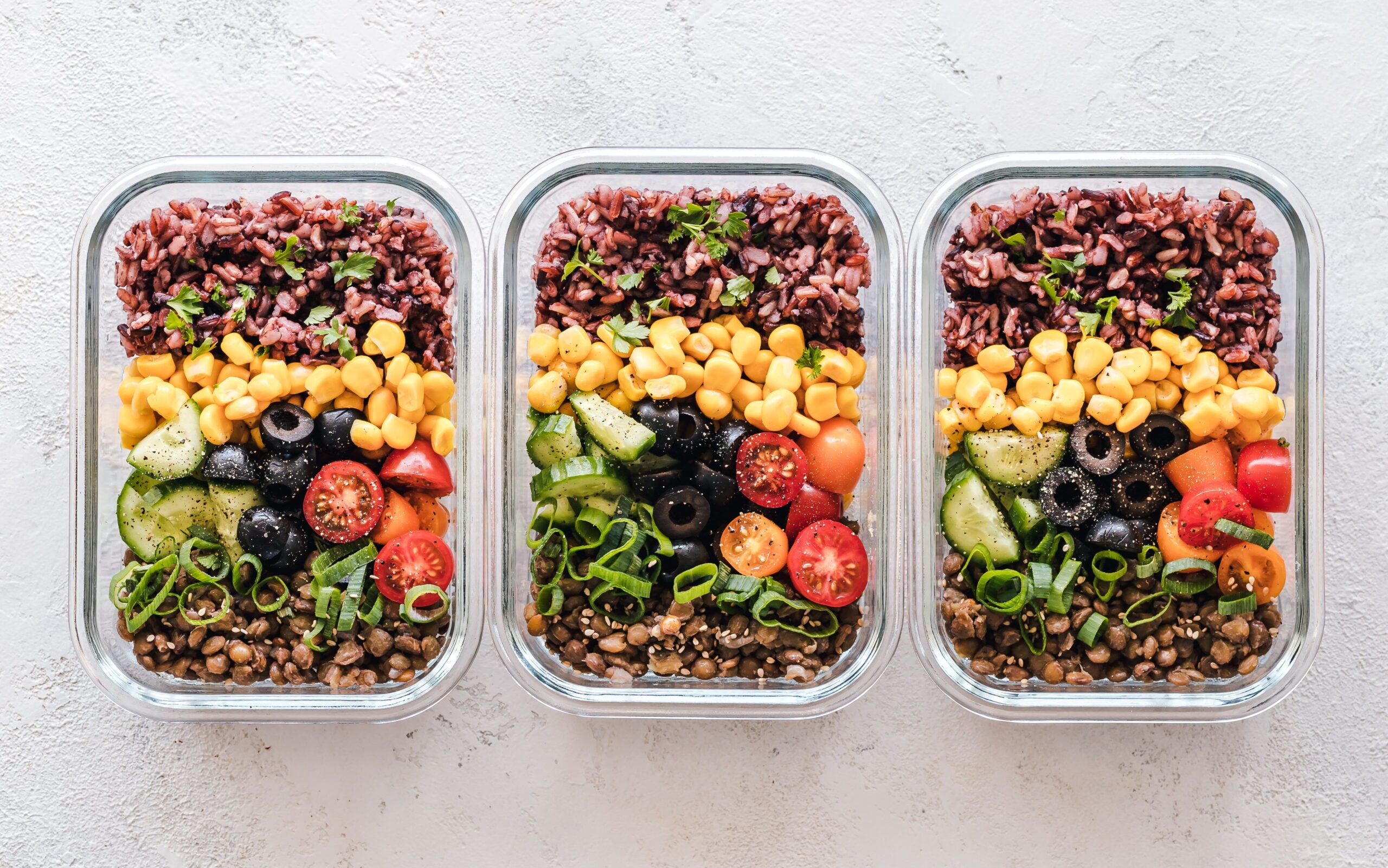
The Atwater general factor system, developed by American chemist W. O. Atwater in the 19th century, assigns energy values to foods. It simplifies calorie estimation for macronutrients as shown below:
- Carbohydrates: approximately 4 calories per gram
- Protein: approximately 4 calories per gram
- Fat: approximately 9 calories per gram
- Alcohol: approximately 7 calories per gram
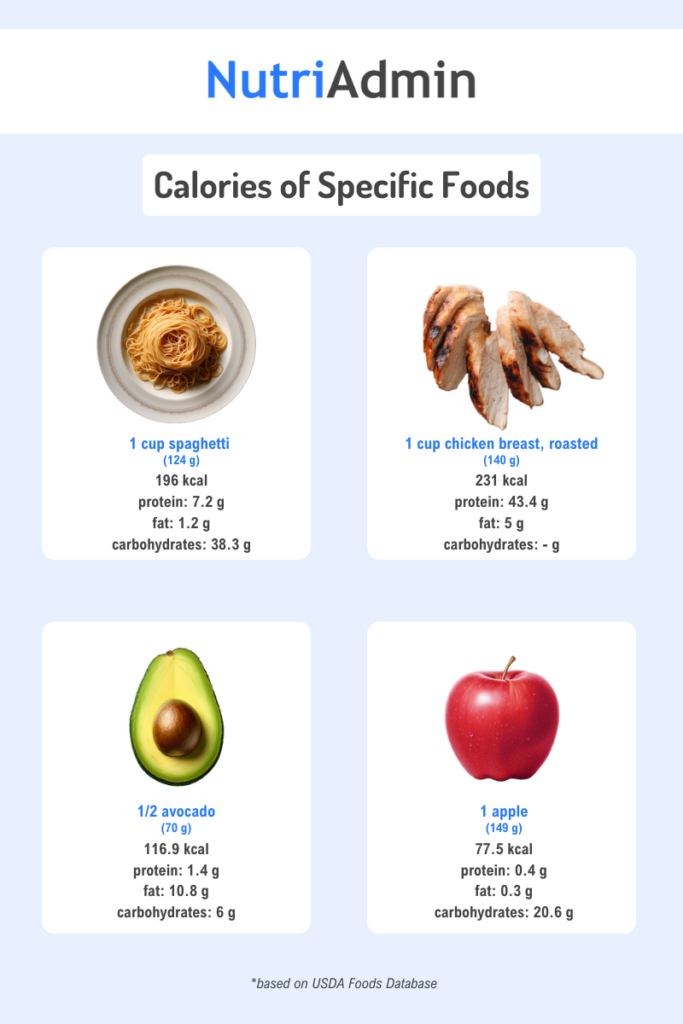
While it provides a straightforward approach, it has limitations. For one, the calorie counts per gram for carbohydrates, protein, fat, and alcohol provide a general guideline but may not precisely represent every food item. The actual calorie content can vary due to factors like cooking methods and processing.
Additionally, packaged foods often have variations in calorie content, making it challenging to rely solely on these values for accurate calculations. It’s essential to consider these limitations and be aware that the listed values serve as rough estimates rather than exact measurements.
Calorie Deficit Tips
The following are practical tips for navigating a calorie deficit effectively. From making mindful food choices to incorporating healthier alternatives, these tips aim to support your journey towards sustainable weight management.

Determine Your Calorie Needs
To achieve a calorie deficit, you have to start by calculating your Basal Metabolic Rate (BMR) and Total Daily Energy Expenditure (TDEE). This will provide you with a baseline for the number of calories you require daily.
In the past, researchers believed that burning or cutting 500 calories a day would result in losing 1 pound of fat a week. However, this is not the case for everyone.
Generally, if you reduce your daily calorie intake by about 500 calories from your usual diet, you might lose approximately ½ to 1 pound per week. But the actual amount can vary based on your body, weight loss goals, gender, and activity level.
Set Realistic Goals
Establish achievable weight loss goals to ensure you can stick to the change making your weight loss sustainable. Characteristics of effective goals are the following:
- Specific – instead of saying “I will exercise more often”, set a specific goal like “I will go out for a jog for 30 minutes, every other afternoon this month.”
- Realistic – setting unrealistic goals can lead to constant disappointment which would negatively affect your motivation to achieve your goals. It is best to set realistic goals like “lose 3 pounds in one month” rather than aiming for greater unachievable goals like “lose 10 pounds in 2 weeks”. You can read more on how to build the motivation to lose weight.
- Forgiving – It is important to acknowledge that setbacks are a part of the journey. When setbacks occur, make an effort to get back on track as quick as possible. Additionally, reflect on ways to prevent similar setbacks in future situations.
Setting short-term goals alongside your long-term objectives can keep you motivated. For instance, if your ultimate goal is to lose 30 pounds and lower your cholesterol, you can create short-term goals such as avoiding creamy beverages, waking up early for a 20-minute walk, or committing to eating only lean meats for the entire week.
Track Your Intake
Record what you eat and drink every day, either in a journal or with a calorie tracking app. This simple practice helps you understand your eating habits and track progress towards a calorie deficit. By consistently tracking, you identify areas for improvement and stay accountable to your goals.
It’s especially useful when following calorie deficit tips, like choosing nutrient-packed foods, keeping an eye on portions, and making mindful choices.
Focus on Nutrient-Dense Foods
Prioritize nutrient-dense foods to actively enhance the quality of your diet. These are foods that are typically rich in essential nutrients, such as lean proteins, whole grains, fruits, and vegetables.
These choices not only provide essential nutrients but also enhance satiety, making it easier to maintain a calorie deficit. This, in turn, contributes to long-term health and supports the manageability of weight over time.
Limit High Calorie Foods
Reduce your intake of high-calorie foods by making conscious choices in your daily diet. Begin by identifying and acknowledging these calorie-dense options in your diet such as sugary snacks, fried foods, and processed treats. Gradually reduce portions of these calorie-dense options while incorporating more nutrient-dense alternatives.
Choose Lower Calorie Substitutes
Opting for lower calorie substitutes is an active strategy to manage your calorie intake. Make conscious choices by swapping high-calorie ingredients with lower-calories. Generally, this implies choosing foods abundant in water and fiber. There are several ways to do this like:
- Choose cooking methods that require less oil like baking, air-frying, steaming, or boiling.
- Select lean protein sources instead of higher fat options.
- Go for less sugar or low fat options.
- Pick whole-grain options instead of refined grains
The following are examples of lower calorie substitutes to help you with calorie deficit without feeling hungry:
| USUAL FOOD ITEMS | LOWER CALORIE SUBSTITUTES |
|---|---|
| Whole milk | Low-fat milk, Skim milk, plant milks |
| Heavy cream | Half and half, whole milk |
| Chicken thighs | Chicken breast |
| Cream-based Soups | Clear soups, vegetable-based broth soups |
| Chips, Fries | Air-popped popcorn |
| Fried chicken | Grilled or air-fried chicken |
| Soda, Sweetened Drinks, Alcoholic beverages | Carbonated water, Infused water |
| Cookies, cakes, pastries | Fruits |
Watch Portion Sizes
Be mindful of portion control. Avoid overeating by using measuring tools or visual cues to gauge serving sizes accurately.
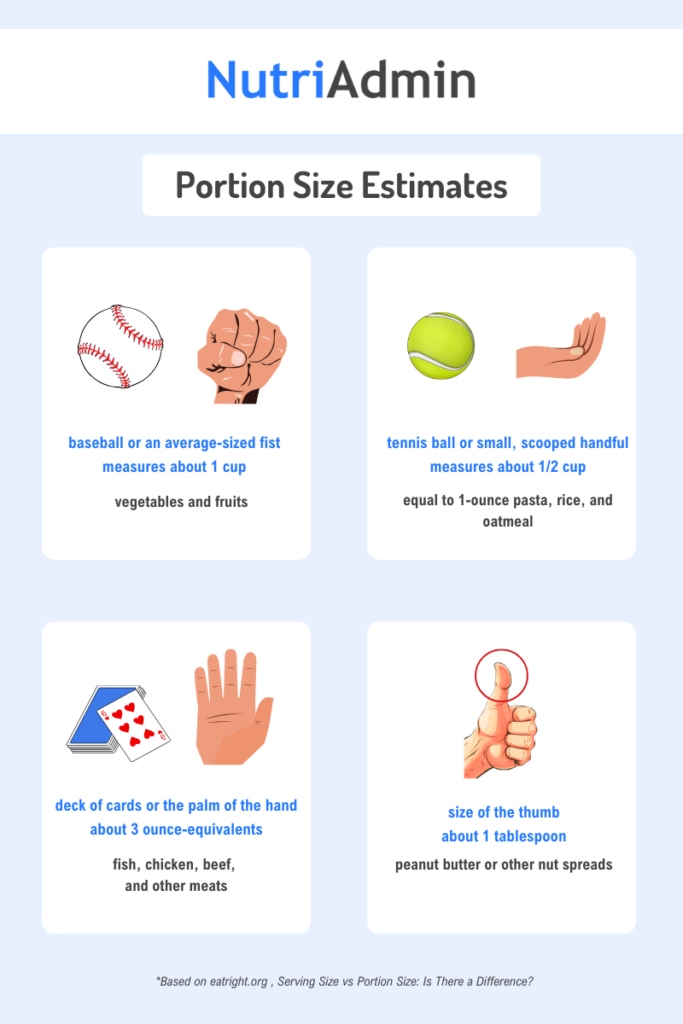
Actively choose smaller servings and gradually adjust your eating habits. This simple practice helps control calorie intake and fosters awareness of how much you’re consuming. Transitioning to reduced portions can help manage calorie intake more effectively.
Start by using smaller plates or bowls, and be mindful of the amount of food on your plate. This simple shift allows you to enjoy your meals while supporting your efforts in maintaining a calorie deficit.
For instance, opt for a regular size iced coffee instead of your usual large one. If you find yourself mindlessly consuming an entire chocolate bar, challenge yourself to eat just a piece or two.
Incorporate Protein
Adding protein-rich sources like chicken, fish, beans, and tofu contributes not only to muscle preservation but also enhances the feeling of fullness, making it easier to control overall calorie intake.
Studies suggest that incorporating protein into your diet, aiming for a daily intake between 1.2 to 1.6 grams per kilogram of body weight, and including approximately 25–30 grams of protein per meal, can lead to significant improvements in appetite, body weight management, and cardiometabolic health when compared to lower-protein diets.
Choose Plant Based Options
A plant-based diet naturally tends to be low in calorie density, thanks to its abundance of fruits, vegetables, whole grains, legumes, nuts, and seeds. This combination is rich in fiber, essential nutrients, antioxidants, and phytochemicals.
Choosing a vegan diet can support weight loss by promoting a calorie deficit, enhances metabolic health, and lowers the risk of chronic diseases.
Include Regular Exercise
Incorporating regular exercise is a key component of a successful calorie deficit journey. Engage in a combination of cardiovascular activities, such as brisk walking or jogging, and strength training exercises to boost your overall calorie expenditure.
Active participation in physical activities not only contributes to weight loss but also helps preserve lean muscle mass. Choose exercises you enjoy to enhance adherence and make it a sustainable part of your routine. Aim for at least 150 minutes of moderate-intensity exercise per week, gradually increasing as your fitness level improves.
Weight loss mainly happens when you consume fewer calories, creating a calorie deficit. But to keep the weight off, it is crucial to stay active regularly. Combining calorie deficit with regular exercise is the key to successful and lasting weight loss.
This not only supports calorie burning during the activity but can also elevate your metabolism for hours afterward. Stay consistent, listen to your body, and consult with a fitness professional for personalized guidance.
Plan Balanced Meals
When striving for a calorie deficit, it’s crucial to actively plan balanced meals that align with your weight loss goals. Ensure that your meals are nutrient-dense and contain lean proteins, whole grains, fruits, and plenty of vegetables.
Incorporate variety to keep your palate satisfied and prevent monotony. Opt for cooking methods that require minimal added fats, such as grilling or steaming. Limit consuming foods that are high in simple sugars like sweet beverages and pastries.
This valuable tips in planning not only supports your calorie deficit but also provides your body with the necessary nutrients for sustained energy and overall well-being.
Remember, the key is to strike a balance that meets your nutritional needs while maintaining a calorie deficit for effective weight loss.
Track Your Progress
To track your progress in achieving a calorie deficit, it’s important to regularly check your weight, measure your body, and pay attention to how your clothes fit.
These simple steps help you stay aware of changes. If you notice positive changes, like weight loss or better-fitting clothes, it means you’re on the right track. If things aren’t progressing as expected, consider making adjustments to your calorie intake or exercise routine. This way, you can adjust your approach and keep moving towards your goals.
Remember, small, consistent efforts make a big difference in achieving and maintaining a calorie deficit for effective weight loss.
Celebrate Wins with Non-Food Rewards
Remember to celebrate your achievements with non-food rewards, such as treating yourself to a massage, buying a new pair of shoes, planning a beach trip with friends, or even a simple relaxing bath. Incorporating these non-food rewards into your journey not only adds a positive and enjoyable aspect to your accomplishments but also serves as a powerful motivator to push you toward your goals.
By recognizing and celebrating your wins, you create a supportive and uplifting environment that can boost your morale, reinforce positive habits, and keep you motivated to overcome challenges on your path to success.
Be Patient and Consistent
Patience and consistency are foundational principles in navigating a calorie deficit. Understand that sustainable changes take time, and results may not be immediate. Consistently adhere to your calorie goals, meal plans, and exercise routines, acknowledging that progress is a gradual process.
Avoid the temptation of quick fixes and extreme measures, as they often lead to unsustainable outcomes. Consistency, coupled with patience, will yield more lasting and meaningful results on your journey towards achieving and maintaining a calorie deficit.
Seek Professional Guidance
Engaging in a calorie deficit may sometimes result in the tendency to excessively restrict food intake, leading to potential negative effects such as fatigue and nutrient deficiencies.
For personalized guidance on developing a calorie deficit plan that suits your health concerns or dietary restrictions, it is recommended to consult with a registered dietitian or healthcare professional. They can offer individualized calorie deficit tips and guidance to ensure your approach aligns with your unique needs and goals.
Meal Planning Tool
In NutriAdmin‘s meal planning software, you can create customized meal plans including recipes based on your calorie needs, specific diets, allergies, and restrictions. With the meal plan generator, you can do this in 60 seconds! This time-saving and efficient tool is especially helpful for nutritionists, dietitians, as well as health and fitness coaches who tend to spend so much time in making recipes and meal plans for every client’s unique needs. Making meal plans for calorie deficit has never been this easy!
Below is a 7-day sample meal plan made using the meal plan generator:
If you want to try this amazing feature, you can sign up for a 14-day trial, completely free!
Reasons Why You’re Not Losing Weight on Calorie Deficit
People on a calorie deficit often overlook crucial factors that can impact their goal achievement, that can potentially affect attaining and maintaining a calorie deficit. Here are some reasons why people don’t lose weight on calorie deficit along with extra tips to avoid these mistakes:
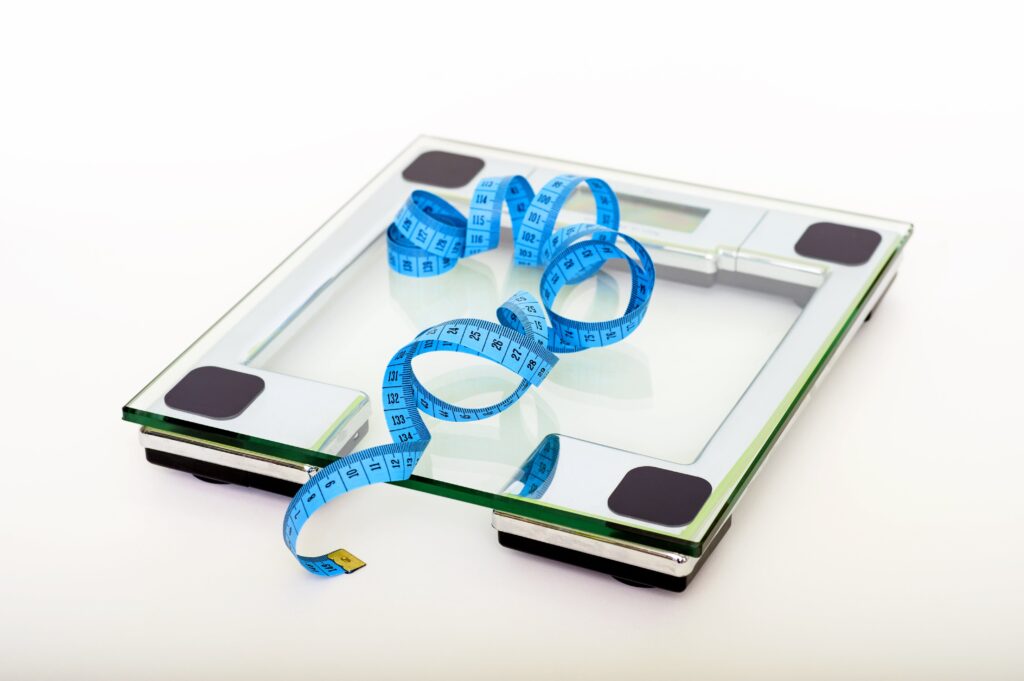
Poor quality diet
Being in a calorie deficit alone will not guarantee weight loss. It is important to be mindful of the food you are consuming. Make sure you eat nutritious foods with a focus on complex carbohydrates, protein, and healthy fats.
Insufficient sleep
Certain studies indicate that sleep is linked to weight loss, particularly fat loss, especially in the context of calorie restriction. For instance, a study observed that individuals undergoing 14 days of calorie restriction experienced less fat loss when they had insufficient sleep (5.5 hours a day in bed) compared to those with adequate sleep (8.5 hours a day in bed).
Poor sleep increases ghrelin, stimulating appetite and fat storage, while decreasing leptin, the hormone that regulates hunger and fat storage. This hormonal imbalance leads to overeating and persistent hunger, hindering weight loss.
The relationship between sleep and weight loss appears to be two-way, with sleep deprivation disrupting the body’s appetite control system and negatively impacting metabolic rate.
Stress
Stress is often overlooked but can significantly impact weight loss efforts. Understanding how stress influences your body is crucial.
Stress, particularly when it hinders sleep, disrupts hormones related to hunger and fullness, affecting weight loss.
Additionally, stress prompts the body to conserve energy by burning fewer calories, potentially causing weight gain. Many people resort to emotional eating as a coping mechanism, further impacting metabolism and weight.
Health conditions
Several health conditions can hinder weight loss despite calorie deficits. These include:
- Endocrine Diseases: Conditions like polycystic ovary syndrome (PCOS), Cushing’s syndrome, and hypothyroidism affect hormonal balance, making weight loss challenging.
- Hypothalamus Damage: Injury to the hypothalamus, a brain area near the pituitary gland, can disrupt the body’s weight-regulating mechanisms.
- Depression: Mental health plays a crucial role; depression may lead to weight gain or make it difficult to lose weight.
- Long-term Stress: Chronic stress impacts the body’s response, potentially hindering weight loss efforts despite calorie reduction.
- Eating Disorders: Conditions such as binge-eating disorder and bulimia nervosa involve consuming large amounts of food uncontrollably. In bulimia, individuals may use unhealthy methods like vomiting or laxatives to prevent weight gain.
Seeking professional guidance and adopting a comprehensive approach that addresses both dietary changes and the management of underlying health issues is crucial for effective weight management.
Extra calories when eating out
Dining out is fun, but it can be tricky when you’re watching your calories. Restaurant dishes often contain more calories than you’d expect. That’s because they use extra oils, butter, and flour to make dishes taste great, which can really add up.
Additionally, portions at restaurants tend to be larger than what we’d serve at home. The “clean plate” habit can also lead to eating more calories than you planned.
If possible, steer clear of buffet restaurants, as they may tempt you to overeat in an attempt to get value for money.
Underreporting your calorie intake
A common challenge in managing a calorie deficit is the tendency to underreport calorie intake. A study in the UK, has shown that people often report eating way fewer calories than we actually do. Results showed people underreported their calorie intake by one-third. That’s a pretty big deal!
It’s important to actively track and accurately account for all foods and beverages consumed. Use tools like food diaries or apps to record your intake, helping you stay mindful of your calorie goals. Be honest about portion sizes and ingredients, as underreporting can hinder the effectiveness of your calorie deficit.
For precise tracking and optimizing your calorie intake for successful weight loss and other goal achievement, think about seeking guidance from a nutrition professional.
Overlooked calories
People often overlook calories, unintentionally neglecting to account for them in their daily intake. It’s essential to actively pay attention to these unnoticed calories, which can accumulate from various sources like snacks, beverages, and condiments.
People often forget to consider calories from various sources, such as:

Cooking Oil
When you’re sautéing or frying food, you might forget to measure the cooking oil. A few tablespoons of oil can add hundreds of calories to your meal, and this quickly adds up with multiple dishes.

Snacks
Snacking can sneakily pile on the calories. Those handfuls of nuts, pieces of chocolate, or bags of chips consumed between meals can contribute significantly to your daily calorie intake. Pre-portion your snacks to avoid overeating.

Beverages
Caloric drinks like sugary sodas, fruit juices, coffee and milkshakes with whipped cream, and alcoholic beverages are often overlooked when counting calories. These drinks can pack a considerable calorie punch.

Condiments
Sauces, dressings, and condiments like ketchup, mayonnaise, and salad dressings can also sneak in extra calories to your meals.

Milk in Coffee
A splash of milk or creamer in your coffee may seem small, but it can add extra calories if you’re a regular coffee drinker.
Poor calorie estimation
To meet your dietary goals, you need to make sure you’re not underestimating your calorie intake. Here are some practical steps to help you get a better idea of your calorie count:
- Measure Ingredients: Use measuring cups, a food scale, or smartphone apps to measure ingredients when you’re cooking. This ensures you’re aware of the exact amounts you’re consuming.
- Read Labels: Pay close attention to food labels and restaurant menu descriptions. They often provide valuable information about calorie content.
- Keep a Food Diary: Writing down what you eat in a diary or using a calorie-tracking app can help you stay on top of your choices.
- Be Mindful of Portion Sizes: When dining out, consider sharing dishes or taking leftovers home to avoid overeating.
- Educate Yourself: Get to know the calorie estimates for common foods and ingredients. This knowledge will help you to make informed choices.
Debunking Calorie Myths
Sorting through online resources for science-based information can be challenging due to the prevalence of appealing yet misguided myths. To guide you away from misinformation, we’ve gathered and debunked some common calorie-related myths.
All Calories Are Created Equal
The traditional advice of burning more calories than consumed for weight management is questioned in light of a recent review in JAMA Internal Medicine, exposing historical conflicts of interest in nutritional science.
The study, funded by the Sugar Research Foundation (SRF) in the 1960s, wrongly implicated fat and cholesterol as the main culprits for weight gain and heart disease, influencing decades of dietary habits. The JAMA review revealed that doctors involved in the study were paid by the SRF, introducing bias.
In contrast to calorie-centered methods, the emphasis is on the sources of calories, highlighting the importance of differentiating between high and low-glycemic foods. Dr. David Ludwig advocates for embracing healthy fats like avocado and nuts, challenging the previous stigma associated with fat consumption. The reconsideration of nutritional perspectives urges a shift towards mindful food choices for sustained health and weight management.
Negative-Calorie Foods
The concept of negative-calorie foods suggests that certain foods require more calories to eat, digest, and process than they naturally contain. Examples include celery, carrots, and lettuce, often marketed as weight-loss aids.
However, there is no scientific evidence supporting the existence of negative-calorie foods. While your body expends energy during chewing and digestion, it’s typically a small percentage of the calories provided by the food. For instance, the energy used to process foods is about 5–10% for carbs, 0–5% for fat, and 20–30% for protein. Most alleged negative-calorie foods, high in water and carbs, are unlikely to have significantly higher digestion-related energy expenditure.
Similarly, zero-calorie items like cold water may induce a small, short-lived increase in metabolism, contributing minimal calories over time. Despite claims, the effects of such items on overall calorie burning are negligible.
In summary, the idea of negative-calorie foods lacks scientific support, emphasizing the importance of a balanced, nutritious diet for effective weight management.
Calories Consumed at Night Are Automatically Stored as Fat
When it comes to weight gain or loss, the key is not the time of day but what you eat. However, there are several factors that may cause the association with eating late at night and weight gain.
Evening snacking is often associated with high-calorie foods consumed during TV or computer time, leading to mindless overeating. Despite a slower nighttime metabolism, your body burns calories even during sleep.
A recent study aimed to understand why late-night eating affects weight by controlling factors like calorie intake, sleep, and physical activity. Late eaters experienced increased hunger, hormonal shifts related to appetite, and burned fewer calories during the day.
The findings showed that late eating led to decreased levels of the hormone leptin, which signals satiety, increased hunger, slower calorie burn, and increased adipose tissue gene expression promoting fat growth.
The study suggests that metabolism fluctuates throughout the day, highlighting the importance of meal timing. However, it doesn’t definitively establish a link between late eating and long-term weight gain.
Critics argue that more research is needed to understand the broader impact on weight management, considering diverse populations and daily schedules. While the study offers insights into metabolic health, practical advice for individuals may involve aiming for earlier dinners and minimizing late-night eating.
Although calories consumed at night are not automatically stored as fat and is a considered a myth, late night eating still affects weight in different ways like appetite related hormonal changes, and metabolic changes.
Calories In, Calories Out
The idea that weight loss boils down to a simple “calories in, calories out” equation oversimplifies a complex process. Calculating energy intake and expenditure is nearly impossible to do accurately, as factors like metabolic rate variations and food labeling discrepancies come into play. Moreover, not all calories are equal; different sources affect our bodies differently, influencing hormones, brain response, and energy expenditure.
The formula also neglects the body’s adaptive mechanisms. When calorie intake drops, our body, rooted in survival instincts, triggers responses like slowing metabolism, changing energy sources, and adjusting adrenal gland function. These adaptations aim to protect against perceived threats, making sustained weight loss challenging.
While short-term success may be achieved, the myth of “calories in, calories out” fails to consider the intricacies of our body’s responses, often resulting in weight regain. Opting for evidence-based, gradual lifestyle changes guided by health professionals proves more effective for long-term weight management.
Extreme Caloric Restriction for Faster Results
Extreme caloric restriction for faster results is a common myth in weight loss. While creating a calorie deficit is crucial, starving yourself can have detrimental effects on your body.
In the short term, you may experience significant weight loss, but it’s challenging to sustain. Starvation triggers your body’s survival mechanisms, slowing down metabolism and using muscle and fat stores for energy.
This adaptation makes long-term weight maintenance difficult and can lead to health issues, including weakened bones, compromised immunity, and changes in reproductive and mental health. Instead of extreme measures, it’s important to adopt a balanced approach to weight loss for sustainable and healthy results.
Carbs Make You Fat
Weight gain is not naturally caused by carbohydrates. Instead, the primary factors influencing weight gain are the quality of carbohydrates consumed and the overall calorie intake.
In a study, it showed that increased intake of foods with higher glycemic index and glycemic load, such as starch and added sugar, was associated with weight gain. On the other hand, higher intake of carbohydrates from whole grains, fruits, and non-starchy vegetables was associated with less weight gain.
The study suggests that focusing on the quality and sources of carbohydrates, favoring whole foods over processed ones, may be beneficial for long-term weight management, particularly for those with excessive body weight.
Conclusion
Understanding calories and implementing a calorie deficit is crucial for effective weight management and chronic disease prevention.
Calculating your daily calorie needs through steps like determining your Basal Metabolic Rate (BMR) and Total Daily Energy Expenditure (TDEE) provides a personalized approach. Online calorie calculators can assist, but seeking guidance from a nutrition professional ensures accuracy and individualized plan.
To achieve a calorie deficit, focus on nutrient-dense foods, monitor portion sizes, and incorporate protein. Implementing lifestyle changes, such as regular exercise and balanced meals, enhances success. These calorie deficit tips can help you to achieve a sustainable and healthy weight loss journey.
However, challenges like motivation to lose weight, poor diet quality, insufficient sleep, stress, health conditions, and hidden calories can hinder weight loss efforts on a calorie deficit.
Despite common myths, not all calories are equal, and extreme caloric restriction can be counterproductive.




